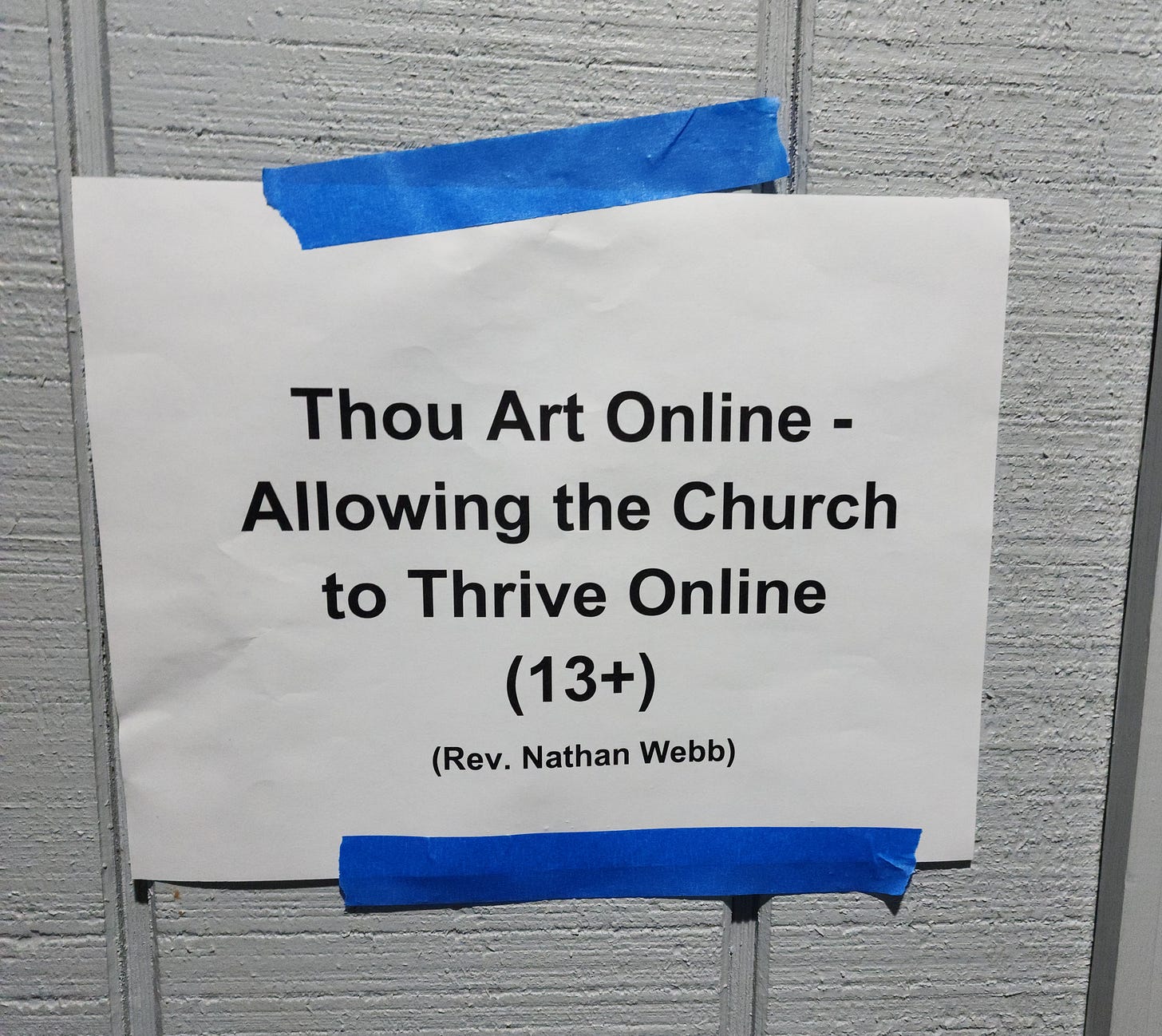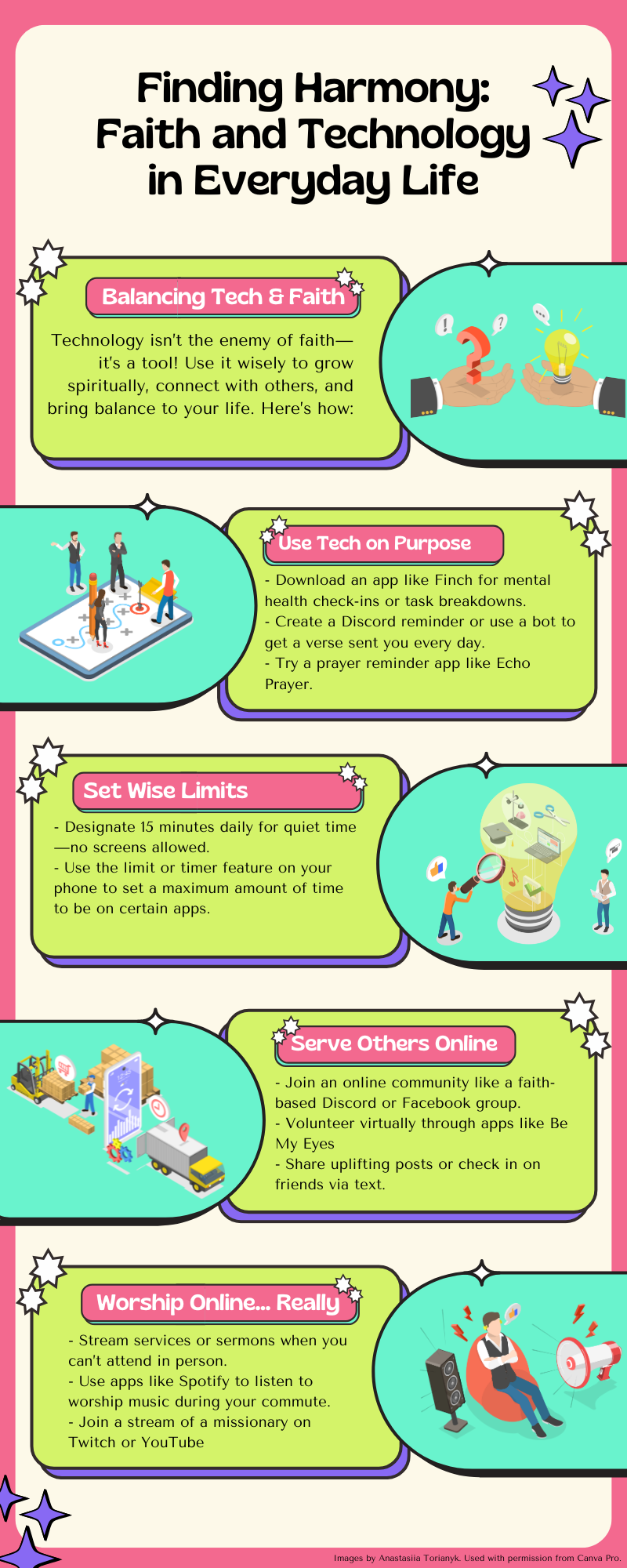We Need Cell Phones in Schools (+ Free Resource)
A Digital Pastor’s Perspective on the current Anti-Phone Debate
A few weeks ago, I had the unique privilege—and challenge—of leading a workshop for 13 to 18-year-olds at a youth retreat. Teaching is no stranger to me, but my usual audience consists of church planters and ministry professionals, not teenagers armed with energy, skepticism, and smartphones. That last part—the omnipresent phones—stung a bit. As I stood there pouring my heart into sharing what I know about digital ministry, many of the kids seemed absorbed in their screens.
At first, it felt personal, as if my presence and preparation were being ignored. I even vented to my wife, an educator, about the experience, describing my frustration at how the devices seemed to pull attention away from what I thought mattered most. But after the sting faded, I sat with my discomfort and reflected.
In that process, I realized the irony: I’m a digital pastor, someone whose ministerial effectiveness exists precisely because of these screens.
What was initially unsettling became an opportunity to reconsider what cell phones mean—not as distractions, but as the tools of several generations.
Looking in the Black Mirror
There’s a growing movement advocating for cell phone bans in schools, often led by voices like Jonathan Haidt, of whom I am deeply skeptical.
That being said, their concerns are valid: skyrocketing rates of anxiety, depression, and attention issues among young people can’t be ignored. But is banning cell phones the answer? Or does it simply scratch the surface of deeper issues without addressing their root causes?
As someone whose ministry thrives in digital spaces, I approach this debate differently.
I’ve seen the ways technology can isolate us—but I’ve also seen how it connects, heals, and inspires. The very tools blamed for creating shallow relationships and mental health challenges are, in other contexts, lifelines for people navigating their faith, friendships, and mental well-being.
At Checkpoint Church, where I pastor a community of nerds, gamers, and geeks, cell phones and computers are not distractions or supplemental; they’re the primary and effective means through which we build relationships and share God’s love. Platforms like Discord, Twitch, and YouTube aren’t competitors to traditional ministry; they simply are ministry.
Could the same be true in schools? Perhaps phones are not the villains we’ve made them out to be. Perhaps they’re mirrors, reflecting the discomfort adults feel when we see children engage with a world that’s rapidly outpacing our ability—or willingness—to understand it.
Nothing New Under the Sun
Let’s face it: kids have always found ways to disengage when they’re bored.
Doodling in margins, passing notes, gazing out windows—all of these behaviors existed long before the iPhone. The difference now is that the device in their hands has a double-edged potential. A phone can be a source of distraction, yes, but it can also be a gateway to curiosity, creativity, and connection.
During the workshop, I wondered: What were these kids actually doing on their phones? Were they really disengaged, or were they processing what I was saying in ways I couldn’t see?
Were they sharing notes with friends, searching for more information about digital ministry, or maybe even texting someone about how this pastor was talking about faith and TikTok in the same breath?
Assuming the worst of their behavior says more about my biases than it does about theirs. It also misses a deeper point: we, as educators, pastors, and leaders, often struggle to make our messages relevant to the mediums young people already inhabit.
We demand their attention on our terms while failing to meet them on theirs.
Tale (at least) as Old as Me
Recently, my friend and fellow Substacker Jim Keat posted a reflection on his origins in digital ministry which led to me considering my own origin story.
As I reflected on my teenage years, I realized how formative technology had been for me from a very young age. When I got my first phone, I used it not just to stay connected but to reach others. Every morning, I’d send group texts with jokes and an encouraging message: “God loves you, and so do I.” It wasn’t grandiose ministry, but it was meaningful to me and to those receiving the messages.
If my phone had been taken away in the name of focus or discipline, would that budding sense of ministry have been stifled? Would Checkpoint even exist? I wonder how many kids today are similarly exploring their faith, creativity, and callings through technology—and how many of us, with good intentions, inadvertently block those pathways.
A Call to Adapt
The church has long been a place where tradition and innovation collide.
At its best, it’s a space that adapts without losing its essence. Yet, when it comes to technology, the church has often chosen conservative preservation, seeing new tools as threats rather than opportunities.
Cell phones in schools present a similar challenge. They force us to confront our discomfort, not just with technology but with the evolving ways young people process, learn, and connect.
Instead of banning phones, perhaps the better question is: How can we guide students to use their devices wisely, creatively, and meaningfully?
I am more convicted by the tales of the young women who thanked their administrative staff upon the removal of cell phones due to the pressure they felt to be attractive, in case a video they were in the background of that day happened to go viral. That’s far more compelling than the pseudoscientific fearmongering we often see in these conversations.
This issue points more to the work of parents, churches, and teachers to promote healthy behavior than to outright ignore it. If you must ban the phone, that’s your prerogative. But I hope that we’re also offering education about proper media usage in home-ec.
What if schools and churches became places where kids learned how to engage their digital tools, not just when to put them away? What if we taught them to balance their online and offline lives rather than forcing them to compartmentalize them?
The Church’s Opportunity
If we’re honest, the discomfort around phones often comes from our own feelings of being ignored. Hearing the statistic about cell phones being a distraction from the perspective of teachers alludes to this reality. No one likes to feel dismissed—especially when we care deeply about what we’re sharing.
But ministry, like teaching, isn’t about being seen or heard; it’s about planting seeds. Those seeds may sprout in ways we’ll never witness, perhaps in a quiet moment as someone scrolls through Discord or stumbles upon a YouTube sermon.
I believe that banning cell phones won’t make those seeds grow; it will only push them into harder soil. Instead, let’s embrace the messy, unpredictable, and often frustrating work of meeting people where they are—even if it’s on their phones. After all, isn’t that exactly what Jesus did?
World 2-13 Complete
Q: Why did the smartphone go to school?
A: It wanted to improve its cell-f!
I believe in combining words with action. Here is an infographic to help explore ways we might wisely apply tech into our faith lives, with tangible and practical examples.




